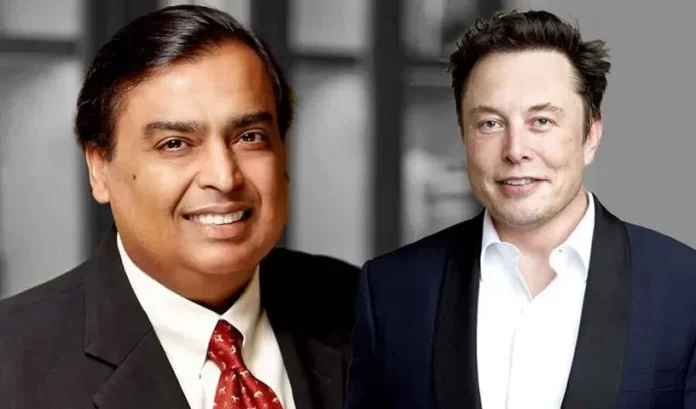Elon Musk, head of Starlink, has criticized Mukesh Ambani’s push to auction satellite broadband spectrum in India rather than allocate it directly. Musk called the proposal “unprecedented” after reports emerged of Ambani’s lobbying efforts. This clash highlights a growing rivalry between the two billionaires over India’s satellite broadband market.
Starlink advocates for administratively allotted licenses, which it claims align with global trends. In contrast, Ambani’s Reliance argues that an auction would ensure a level playing field, especially as foreign entities entering the market might offer voice and data services that compete with traditional telecom providers.
Satellite broadband spectrum, which supports high-speed internet from satellites to ground stations, is key for reaching underserved areas. The allocation of this spectrum is typically regulated by international bodies like the International Telecommunication Union (ITU), to avoid interference with other communication systems.
Reports on Sunday indicated that Reliance had questioned India’s telecom regulator for recommending spectrum allocation without seeking industry input. Reliance argues that the consultation process should start afresh.
Reacting to these developments, Musk posted on X, noting that an auction, as sought by Reliance, would be unprecedented. He cited ITU’s stance that satellite spectrum should be shared among providers, as it is a limited natural resource.
India, an ITU member, adheres to its treaty advocating for rational, efficient, and economic allocation of spectrum. Reliance has previously called on regulators to discuss the spectrum assignment methodology.
This issue has sparked debate among industry players. Sunil Mittal of Bharti Airtel supports the auction, stating that satellite firms eyeing urban areas should acquire spectrum as telecom companies do. However, Musk’s Starlink, along with Amazon’s Project Kuiper, supports administrative allocation.
As Starlink plans its India entry, Ambani, Asia’s wealthiest individual, is firmly advocating for an auction process, intensifying the standoff. The Indian regulator, however, insists that the consultation is proceeding correctly.










